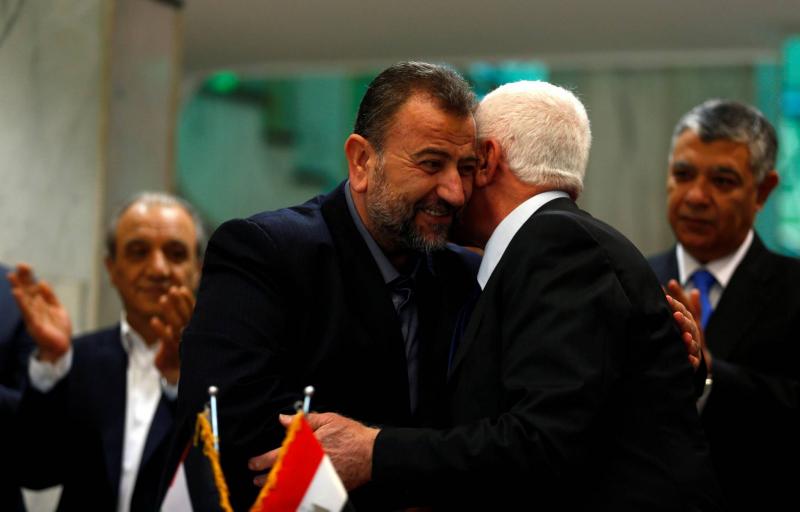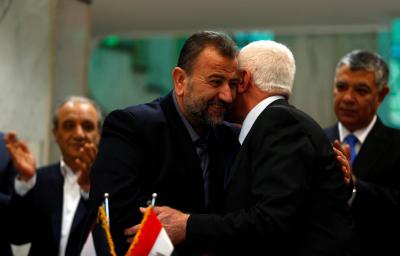Nabil Amro
Egypt has made strenuous efforts led with diligence, determination, and patience by the late Minister Omar Suleiman. The Cairo – Ramallah – Gaza line thrived with active movement from high-level envoys, where no Palestinian connected to the division was left out of consultations, irrespective of their size and influence. On several occasions, Cairo gathered all factions and many independent figures to discuss ways to break the division. Egyptian experts, adept in the minutiae of the Palestinian situation, prepared working papers that covered every relevant detail, proposing practical plans for merging the divided forces within a unified framework, primarily centered on the Palestine Liberation Organization and a single authority. The practical implementation included meticulous arrangements, particularly regarding security, the gradual integration of forces, tasks, responsibilities, and the operational opening of the Rafah crossing, Gaza's only lifeline, which had been severely affected by the departure of the international force agreed to oversee entry and exit, determining the positioning of forces at the crossing and who guards it to ensure accurate distribution of responsible forces and avoid friction, thereby providing regular movement for the people of Gaza in both directions.
All these matters—and many others—were discussed, agreed upon, and celebrated in Egypt.
However, what occurred after each operation carried out by Egypt was a complete divergence between field expectations and actual outcomes. Everything that had been agreed upon was forgotten as soon as each party returned to the division, without any possibility of implementing what had been agreed upon, or even part of it. In this case, the situation did not stagnate but regressed further, deepening the division to the point of resembling separation, while efforts to end it turned into a seemingly impossible situation, pushing the main interveners, particularly Egypt, to the brink of despair as if facing a deadlock with no exit.
In a frank evaluative meeting focused on... why all this failure? Despite the tremendous efforts exerted and the consensus among the parties to the division on the magnitude of the dangers arising from its exacerbation, the late Omar Suleiman revealed the critical clue: "The reason is the absence of a Palestinian-Palestinian lever; without it, there is no hope for any other party to succeed, regardless of how powerful their influence."
This means that the primary role must lie with the Palestinians among themselves; others need only to provide assistance, support, and a space if the occupation prevents leaders and officials from being freely present in the crisis area and in resolution efforts.
After more than fifteen years of division and over a hundred attempts by mediators to end it, the situation remained unchanged, practically entrenching two legitimacies in one country, one people, awaiting one fate: One legitimacy in Ramallah called "official or constitutional," and in Gaza referred to as the legitimacy of the facts on the ground. This has produced a unique situation never seen before: the authority in Ramallah is the opposition in Gaza, and the authority in Gaza is the opposition in Ramallah. This was not a transient case but established as a permanent state.
No country has refrained from intervening to end the division, and no mediator escaped failure that could have been avoided. The most dangerous aspect is that the Palestinian political forces that caused the division have tied themselves up so that they can do nothing but wait by the phone, hoping a new or old mediator will invite them for hospitality.
All who intervened or mediated were well-intentioned individuals motivated by a desire to close the bleeding Palestinian wound. In light of all that has happened, there is a need to reconsider how intervention and mediation are conducted. Those who wish to intervene should tell the Palestinians to agree among themselves first; after that, they will receive all the support to implement what they agree upon.
Given that the root cause lies in the composition of the Palestinian political class, which all belongs to a bygone era, there is no alternative but for all concerned to assist “by advising” to renew this class—not through cloning or collusions but by heading to the ballot box. Through this, the legitimacies can unify into one, allowing the Palestinians to set foot on the first path leading to their unity; without it, everything will regress and collapse. When the Palestinians succeed in restoring their political system and unifying their legitimacy, the well-meaning will succeed in assisting them.




